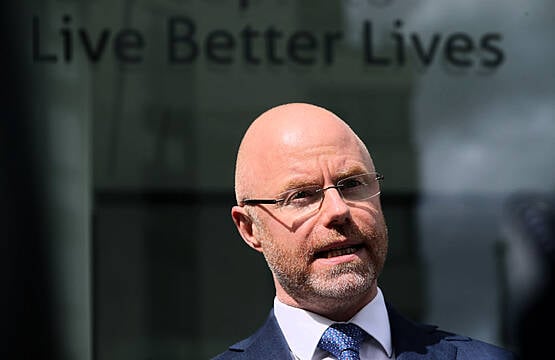Updated at 11:02
Minister for Health Stephen Donnelly has said that while some machines in voluntary hospitals are working, radiology, oncology and laboratory services remain disrupted following last week’s cyberattack.
Progress had been made up to Thursday night in getting some systems back in a number of voluntary hospitals, he told RTÉ Radio’s Morning Ireland.
As The Irish Times reports, among the services which have returned are the radiology system NIMIS (National Integrated Medical Imaging System), laboratory systems, and patient administration systems, he said.
Radiation oncology remained a problem, he said, as disruption continued across many hospitals following the cyberattack.
While some machines were running, it was not at the level the Health Service Executive (HSE) needed.
Mr Donnelly said it was an “absolute priority” for the HSE to get machines back up and running with teams working around the clock.
The work being done to restore all the patient systems would make the systems themselves stronger and more robust in the short and medium term, he said.
Decryption key
It comes as earlier it was confirmed that the Government has not paid any ransom to hackers involved in the ransomware attack on the health system, according to Donnelly.
A decryption key was made available on Thursday evening almost one week after the IT system was attacked and is being tested to ensure its validity.
The Minister said the initial responses from tests on the validity of a decryption tool provided to the HSE were positive.
Speaking on RTE Radio 1, Mr Donnelly said: “Categorically, no ransom has been paid by this Government directly, indirectly, through any third party or in any other way. Nor will any such ransom be paid.”
We will make every effort to protect patients and their data as much as possible.
The disgraceful cyber attack this week is an attack on the Irish state and all of us who value our health system so highly. https://t.co/cxMCJyPj0j— Stephen Donnelly (@DonnellyStephen) May 20, 2021
The minister told Morning Ireland it was “unclear” why the decryption key was being made available and that it “came as a surprise”.
He added that there could be “any number of reasons” behind the move, and it would not be useful for him to speculate.
Meanwhile, On Newstalk Breakfast, Minister of State with responsibility for Government Ossian Smyth also emphasised that no ransom had been paid. “The Government 100 per cent did not pay a ransom or get anyone indirectly to do so.”
No act of goodwill
Mr Smyth said that getting the data back was like having your house burgled and then getting the contents back in a skip. Tests still had to be carried out on the data to ensure it was safe.
He added that he did not think anyone believed that providing the decryption tool was an act of goodwill. “All will come out in the wash.” It would have made absolutely no sense to pay money to the criminals, he added.
The threat to release patients’ data was being taken very seriously, and it was entirely possible that this could still happen. If anyone was contacted about their data they should contact the helpline 1 800 666 111 immediately, he said.
The injunction secured in the High Court on Thursday was a standard approach in such circumstances, he said, and was taken to obstruct anyone attempting to share information that appeared on the dark web. It was relevant to anyone who would consider sharing that information.
“Unfortunately there are some people who think these things are funny,” he said. “We are taking this thing very seriously which is why we went to the High Court.”







